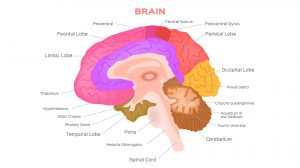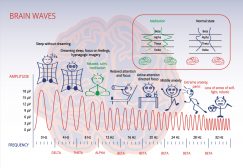Definition
noun, plural: neurologies
The branch of medicine that deals with the nervous system, specially associated with disorders, diagnosis, and treatment
Supplement
Neurology is a science that deals with the nervous system, particularly the disorders, diagnosis, and treatment involving the nervous system. It encompasses both the central nervous system (i.e. brain and spinal cord) and the peripheral nervous system (such as nerves, muscles, and neuromuscular junction). It may be a branch of medicine since it is concerned with the disorders involving the nervous system, as well as the diagnosis and the treatments pertinent to these disorders. It also takes into consideration the coverings, blood vessels, and muscle affected by a certain disorder in the nervous system. An expert of neurology is called a neurologist, who may be a physician specializing in this field.
Neurology is different from neurobiology (or neuroscience). The latter focuses more on the structure, function, physiology (mechanisms), evolutionary, developmental, cellular, molecular, medical, and computational aspects of the nervous system. Thus, neurology may be a sub-field of the more encompassing, neuroscience.
Word origin: Greek neuron + logos (science)
See also:
- nervous system
- central nervous system
- peripheral nervous system
- neuroscience
- neuroanatomy
- neurologist
Related term(s):
Related form(s):
- neurologic (adjective: of, or pertaining to, neurology, or to the nervous system)
- neurological (adjective: of, or pertaining to, neurology, or to the nervous system)






